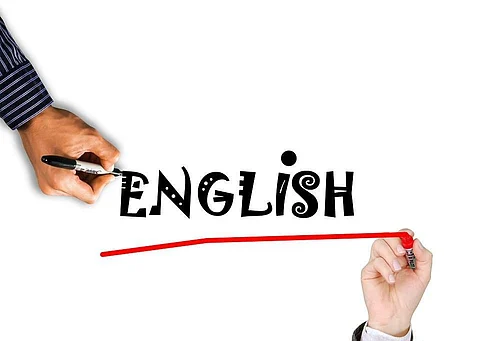

In the sentences below, we find word pairs Turkey-turkey, August-august and China-china with identical spellings but with different meanings. Based on the contextual clues, we can guess the meanings of the words.
1. We ate turkey on Christmas eve in Turkey.
2. Last August we were delighted to be in the august company of some cricketers.
3. Next time when you visit China, buy some plates and cups made of china.
What is the difference between ‘Turkey’ and ‘turkey’? ‘Turkey’ (the first letter capitalised) is the name of a transcontinental country located in Southwestern Asia and Southeastern Europe whereas ‘turkey’ (the first letter not capitalised) is a domesticated bird whose flesh is used as food on special occasions like Christmas and Thanksgiving. The word ‘turkey’ also means ‘failure’. If a film or play is a flop, we call it a turkey.
What is the difference between ‘August’ and ‘august’? ‘August’ (the first letter capitalised) is the name of a month whereas ‘august’ (the first letter not capitalised) means respected and impressive as in the sentence: “We were in the august company of some selfless social activists.”
‘China’ is the name of a country. The word ‘china’ (not capitalised) is a hard white substance made from clay and it is used to make cups, bowls, plates and ornaments. Utensils made of china are referred to as china.
Dual meaning words such as Turkey-turkey, August-august and China-china are called capitonyms because the meaning of the words changes if the first letter is capitalised. Sometimes, the pronunciation of such words also changes. Look at this example. ‘Mobile’, when capitalised, refers to a port city on the coast of southern Alabama. It is pronounced /mbi:l/. The second syllable ‘bile’ in ‘Mobile’ rhymes with ‘deal’ and is stressed. The word ‘mobile’, when not capitalised, means ‘able to move freely’ or a cellphone and is pronounced /mbl/ with the stress on the first syllable. The second syllable ‘bile’ in ‘mobile’ rhymes with ‘file’.
Capitonym is a portmanteau of ‘capital’ and the suffix ‘-onym’ (from the Greek ‘onoma’ which means ‘name’). In any capitonym pair, one word is a proper noun and the other is a common noun. A capitonym is a subset of homonyms which are defined as words with the same spelling but different meanings. Here are some more examples of capitonyms: March – march, May – may, Titanic – titanic, Polish – polish, Conservative – conservative, Reading – reading.
‘Titanic’ was a British passenger ship that sank in the North Atlantic Ocean on 15 April 1912. It is also the name of a movie based on the accounts of the sinking of the ship. The adjective ‘titanic’ means ‘gigantic’ or ‘of exceptional strength or power’.
— Though the captain of Titanic had titanic power, he couldn’t save all people.
The Conservative Party is a political party in the UK. The members of the party are called Conservatives. The adjective ‘conservative’ means ‘traditional’ or ‘unprogressive’. If a person is conservative in their appearance, they do not wear cool clothes.
— Not all Conservatives are conservative in their thinking.
